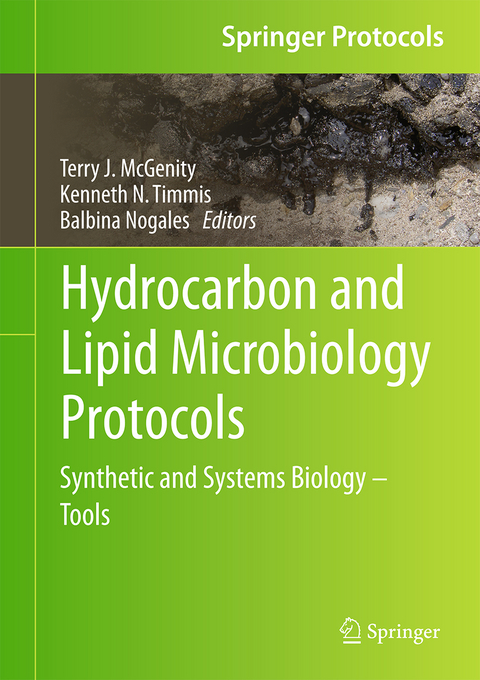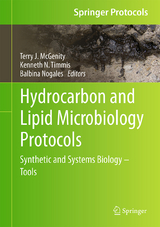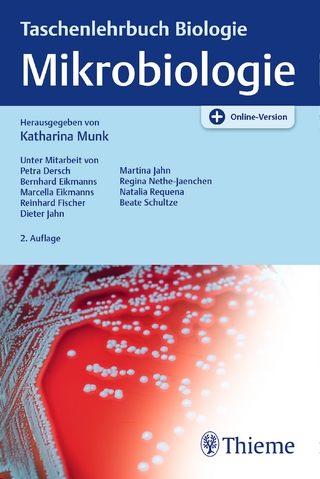Hydrocarbon and Lipid Microbiology Protocols
Synthetic and Systems Biology - Tools
Seiten
2016
|
1st ed. 2016
Springer Berlin (Verlag)
978-3-662-50430-7 (ISBN)
Springer Berlin (Verlag)
978-3-662-50430-7 (ISBN)
This Volume presents generic protocols for wet experimental and computer-based systems and synthetic biology approaches relevant to the field of hydrocarbon and lipid microbiology. It complements a second Volume that describes protocols for systems and synthetic biology applications. The wet experimental tools presented in this Volume include protocols for the standardisation of transcriptional measurements, application of uracil excision-based DNA editing for, inter alia, multi-gene assembly, the use of fluxomics to optimise "reducing power availability", and the incorporation of non-canonical amino acids into proteins for optimisation of activities. Phenome-ing microbes, using a combination of RNA-seq and bioinformatic algorithms, is presented, as is an illustration, using methylotrophs as an example, of how the different key omics approaches constitute a pipeline for functional analysis, acquisition of a systems overview, and metabolic optimisation. Complementary computational tools that are presented include protocols for probing the genome architecture of regulatory networks, genome-scale metabolic reconstruction, and bioinformatic approaches to guide metabolic engineering. The Volume also includes an overview of how synthetic biology approaches can be used to improve biocontainment. Hydrocarbon and Lipid Microbiology ProtocolsThere are tens of thousands of structurally different hydrocarbons, hydrocarbon derivatives and lipids, and a wide array of these molecules are required for cells to function. The global hydrocarbon cycle, which is largely driven by microorganisms, has a major impact on our environment and climate. Microbes are responsible for cleaning up the environmental pollution caused by the exploitation of hydrocarbon reservoirs and will also be pivotal in reducing our reliance on fossil fuels by providing biofuels, plastics and industrial chemicals. Gaining an understanding of the relevant functions of the wide range of microbes that produce, consume and modify hydrocarbons and related compounds will be key to responding to these challenges. This comprehensive collection of current and emerging protocols will facilitate acquisition of this understanding and exploitation of useful activities of such microbes.
Introduction.- Protocol for the standardisation of transcriptional measurements.- Uracil-excision for assembly of complex pathways.- Quantitative physiology approaches to understand and optimize reducing power availability in environmental bacteria.- Design of orthogonal pairs for protein translation: selection systems for genetically encoding noncanonical amino acids in E. coli.- Phenome-ing microbes.- Systems biology tools for methylotrophs.- Protocols for probing genome architecture of regulatory networks in hydrocarbon and lipid microorganisms.- A practical protocol for genome-scale metabolic reconstruction.- Computer-guided metabolic engineering.- Improving biocontainment with synthetic biology: beyond physical containment.
| Erscheinungsdatum | 22.06.2016 |
|---|---|
| Reihe/Serie | Springer Protocols Handbooks |
| Zusatzinfo | X, 199 p. |
| Verlagsort | Berlin |
| Sprache | englisch |
| Maße | 178 x 254 mm |
| Themenwelt | Naturwissenschaften ► Biologie ► Mikrobiologie / Immunologie |
| Technik ► Umwelttechnik / Biotechnologie | |
| Schlagworte | biochemical engineering • Biomedical and Life Sciences • Environmental transcription factors • Expression Systems • Fluxomics and metabolics • Higher-structure genomic organisation • Microbiology • Tools for methylotrophs |
| ISBN-10 | 3-662-50430-8 / 3662504308 |
| ISBN-13 | 978-3-662-50430-7 / 9783662504307 |
| Zustand | Neuware |
| Haben Sie eine Frage zum Produkt? |
Mehr entdecken
aus dem Bereich
aus dem Bereich




